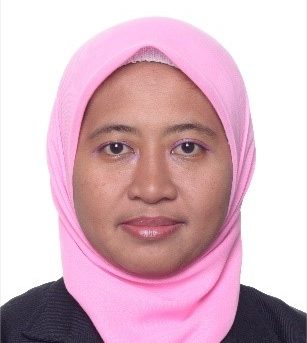



Siti Khadijah Hamzah
Background: I graduated in 2020 with an MSc Electrical Power and Energy Systems (with Advanced Practice) from the University of Teesside, Middlesbrough. My dissertation research project was “Optimisation Modelling for Offshore Wind Farm”. I analysed and studied load flow using software models, IPSA and PowerWorld, observing the losses, mag voltage (p.u) and transmission power system, both active and reactive. I did a placement as a technical assistant at RWE. I investigated carbon price and greenhouse gas emissions (GHG) in two phases of the offshore wind farm life cycle: manufacturing of wind farm components and transportation and installation. In my internship with The Faraday Centre, I explored practical aspects of electrical and mechanical design using provisions of offshore Low Frequency AC (LFAC) transmission from economic and technological perspectives.
Research Interests: My research interest is in renewable energy, specifically offshore wind farms. Offshore wind farms are attractive due to higher energy output, but the costs are greater due to initial investment, operations, and maintenance. The natural elements play a big role offshore, a partial failure can lead to longer disruptions due to site remoteness especially in harsh conditions. Further research and development are required to advance productivity through adverse weather. I am determined to develop my future path in renewable energy in offshore wind and the environment. I would like to tackle the challenges arising in the offshore industry particularly in the electrical area and find an optimal solution for these obstacles.
Why you applied for the Aura CDT: I applied for Aura CDT Doctoral Scholarship because Aura CDT offers access as well as direct interaction on offshore wind farms. This sector interests me most, so blending industry and policy with research and development in a single curriculum is very intriguing. I want to concentrate these next four years under the tutelage of the best in academia and in the field of engineering. I want to be engaged at the leading edge of this technology, existing offshore wind issues will provide perpetual opportunity and fuel my problem-solving creativity.
This work will involve developing advanced computational models for power systems including models that are suitable for solving optimal power flow problems. Models will be developed for VSC-based HVDC links which could be used to form multi-terminal supergrids for connecting multiple wind farms.
The optimal power flow problem, mathematically, is a nonconvex, nonlinear optimisation problem which can be quite tasking in its original form for especially larger scale systems and as such one of the main methodological contributions in this project is to develop suitable approximations such as linearisation methods for reducing the computational expenditure of the optimal power flow problem and at the same time maintain its tractability when scaled up for larger systems.
The project will also involve implementation of a suitable day-ahead operational planning framework by solving multiple instances of optimal power flow problem to plan the operation of offshore wind farms within a specific planning timescale (for example for 24 hours). The planning framework is then implemented to multiple wind farms connected via a multi-terminal HVDC supergrid to provide better power regulation and a more stable, reliable operation even after emergencies such as loss of supply in a specific region.
These added flexibilities of operation are necessary for a sustainable growth and integration of offshore wind resource in the future for example in the UK in line with National Grid’s Future Energy Scenarios (FES) projections
Contact: S.K.Hamzah-2020@hull.ac.uk
LinkedIn: https://www.linkedin.com/in/siti-khadijah-hamzah-3845491b0/

For an informal discussion, call +44 (0) 1482 463331
or contact auracdt@hull.ac.uk